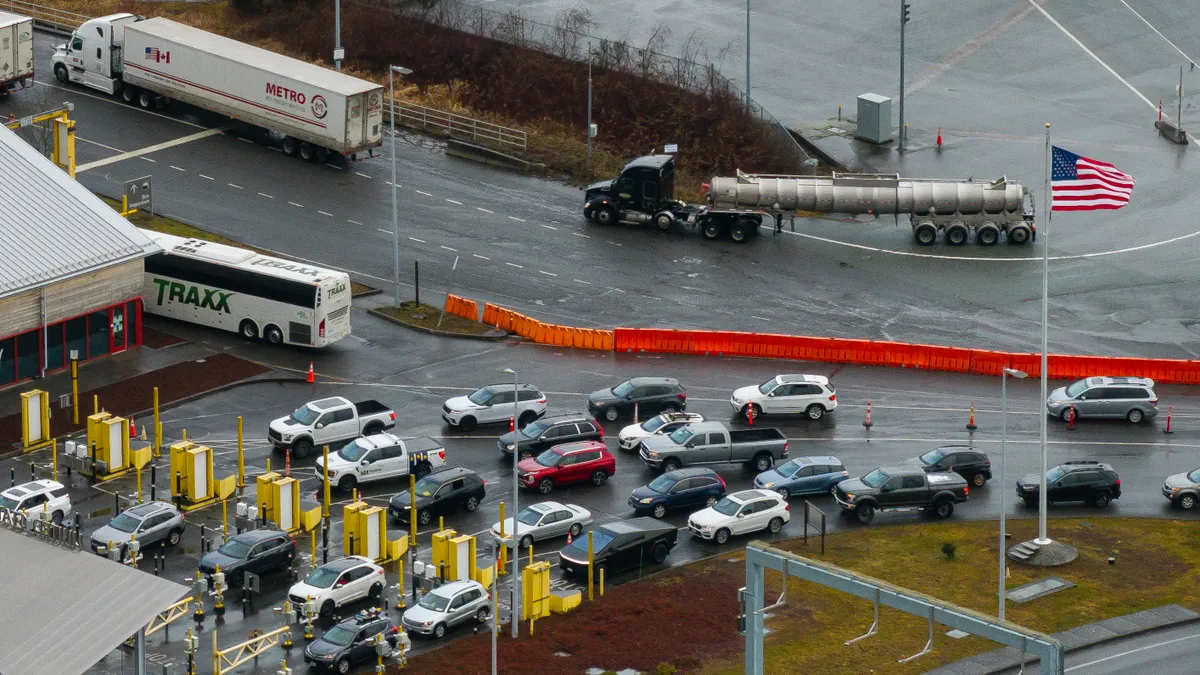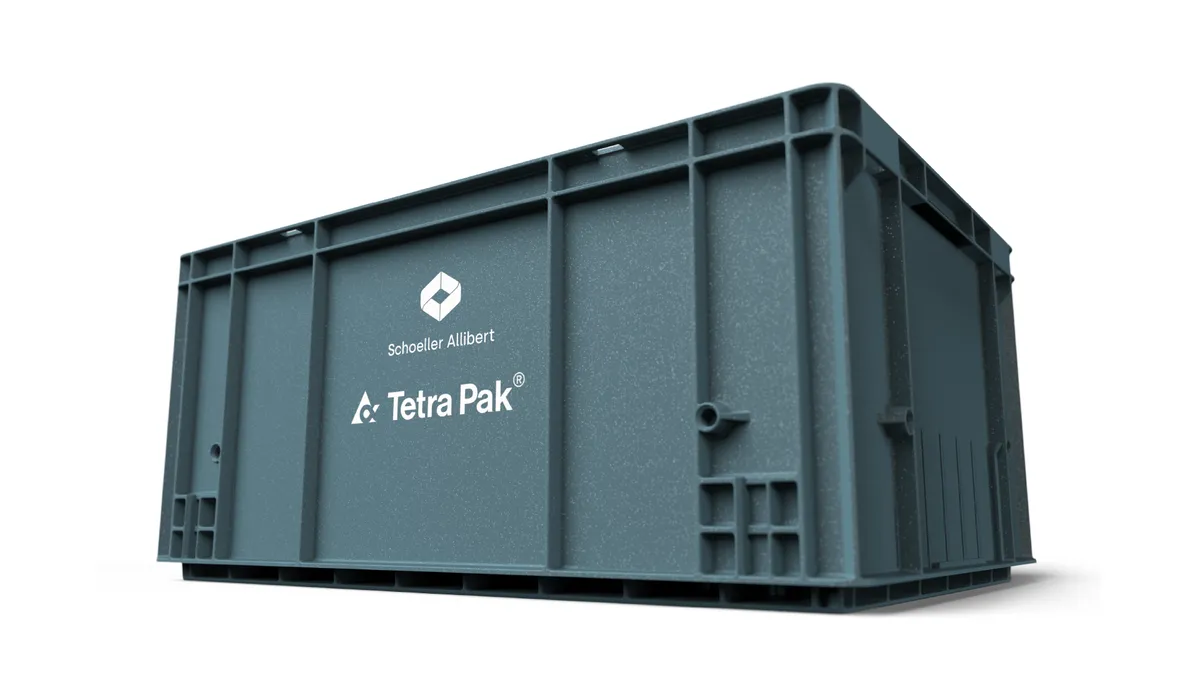Manufacturing and material groups sounded off with concerns after President Donald Trump followed through on imposing tariffs on the United States’ biggest trading partners.
Trump signed executive orders placing 25% tariffs on goods from Canada and Mexico, and an additional 10% tariff on imports from China, with those changes due to take effect Tuesday. The White House said the actions are justified because of what it described as a need to stymie a flow of fentanyl and illegal immigration.
It has set off a dynamic trade war. Canada has already responded, with Prime Minister Justin Trudeau announcing the country would, in two phases, institute a 25% tax on a total of $155 billion worth of U.S. imports, including pulp and paper in February and steel and aluminum products in a later tranche. China’s government has also alluded to possible retaliatory measures.
News broke Monday morning of an agreement between the U.S. and Mexico to delay tariffs there by one month, with Mexico agreeing to reinforce military presence at the U.S.-Mexico border. U.S. tariffs against the European Union and U.K. could still be coming, according to Trump.
The Canadian government released an extensive list of products covered under the tariffs, including several entries for packaging. Affected fiber categories are pulp as well as corrugated and paperboard packaging such as cartons, boxes and bags. The plastic packaging listed includes bags as well as a variety of stoppers, lids and closures. Reusable bags made of materials such as plastic, cotton or jute are listed, as are flexible intermediate bulk containers.
On average for U.S. manufacturing, imports represent 13% of revenue, according to a BofA Global Research analysis Monday. More specifically, those figures are 11% for the plastics and rubber sector, 10% for fabricated metal, 9% for chemical products and 7% for paper and printing.
Tariffs are expected to drag U.S. manufacturers’ margins, which companies could offset through price increases, or, in the longer-term, by increasing domestic sourcing or re-engineering products to avoid inputs that lack domestic sources, BofA noted.
Implications for paper, plastics and metals
Canada and Mexico both are key trade partners with the U.S. for pulp and paper products. Canadian mills are a major supplier for the U.S. boxboard market, and tariffs could result in a supply imbalance in the U.S., Michael Roxland, senior paper and packaging analyst at Truist Securities, noted in a Jan. 20 memo to investors, before the tariffs were made official. He noted that tariffs likely would acutely affect solid bleached sulfate because that grade is more commonly imported than coated recycled board or coated unbleached kraft.
In 2024, total two-way trade for pulp and paper products with Canada was worth over $14 billion and total two-way trade with Mexico was worth over $5 billion, according to a statement from the American Forest & Paper Association.
“These tariffs have the potential to seriously disrupt the U.S. forest products industry’s complex, cross-border supply chains that employ more than 900,000 people,” said AF&PA CEO Heidi Brock in a Feb. 1 statement. “It is imperative we return to normal free and fair trade soon to avoid longer term disruption to U.S. pulp, paper and packaging manufacturing operations.”
Tariffs on foreign aluminum and steel mean domestic manufacturers will likely be able to raise their own prices, the Wall Street Journal reported on Monday. Beverage companies strongly opposed the Trump administration’s 10% tariff on imported aluminum in 2018, WSJ noted, saying that “beer and soda makers paid delivery premiums above what was warranted to cover the tariff.”
Representing plastics interests, both the American Chemistry Council and the Plastics Industry Association raised alarm over Trump’s tariffs.
“Canada and Mexico are our industry’s largest trading partners,” ACC wrote in a Feb. 3 statement, saying the U.S. chemical industry continues to support the USMCA Agreement between the United States, Canada and Mexico. “As we review the impacts of these Executive Orders, we would ask that all parties negotiate a solution to the issues behind these Orders as soon as possible.”
The Plastics Industry Association called for policies that ensure stable supply chains.
“PLASTICS is concerned about the new tariffs and their impact on U.S. plastics manufacturing and jobs. While we understand President Trump’s rationale, a blanket tariff policy could have significant economic consequences, disrupting the movement of essential machines, products, and materials that keep American manufacturers running,” said President and CEO Matt Seaholm. “A strategic, measured approach to trade is critical to strengthening — not inadvertently harming — U.S. industry.”
The Canadian restaurant and food service industry expressed concerns Sunday about Trump’s tariffs and retaliatory measures. “We urge the government to consider exempting food and food packaging from retaliatory tariffs, as these essential, perishable items will only exacerbate inflation,” Restaurants Canada said in a statement.
Broader manufacturers expressed similar concerns.
“A 25% tariff on Canada and Mexico threatens to upend the very supply chains that have made U.S. manufacturing more competitive globally,” National Association of Manufacturers President and CEO Jay Timmons said in a statement Saturday. “The ripple effects will be severe, particularly for small and medium-sized manufacturers that lack the flexibility and capital to rapidly find alternative suppliers or absorb skyrocketing energy costs.”
Meanwhile, the Consumer Brands Association warned of grocery inflation. Tom Madrecki, vice president of supply chain resiliency at CBA, noted in a statement that tariffs on all imported goods from Mexico and Canada, especially those on items unavailable in the U.S., could result in higher prices for consumers and retaliation against U.S. exporters.
























